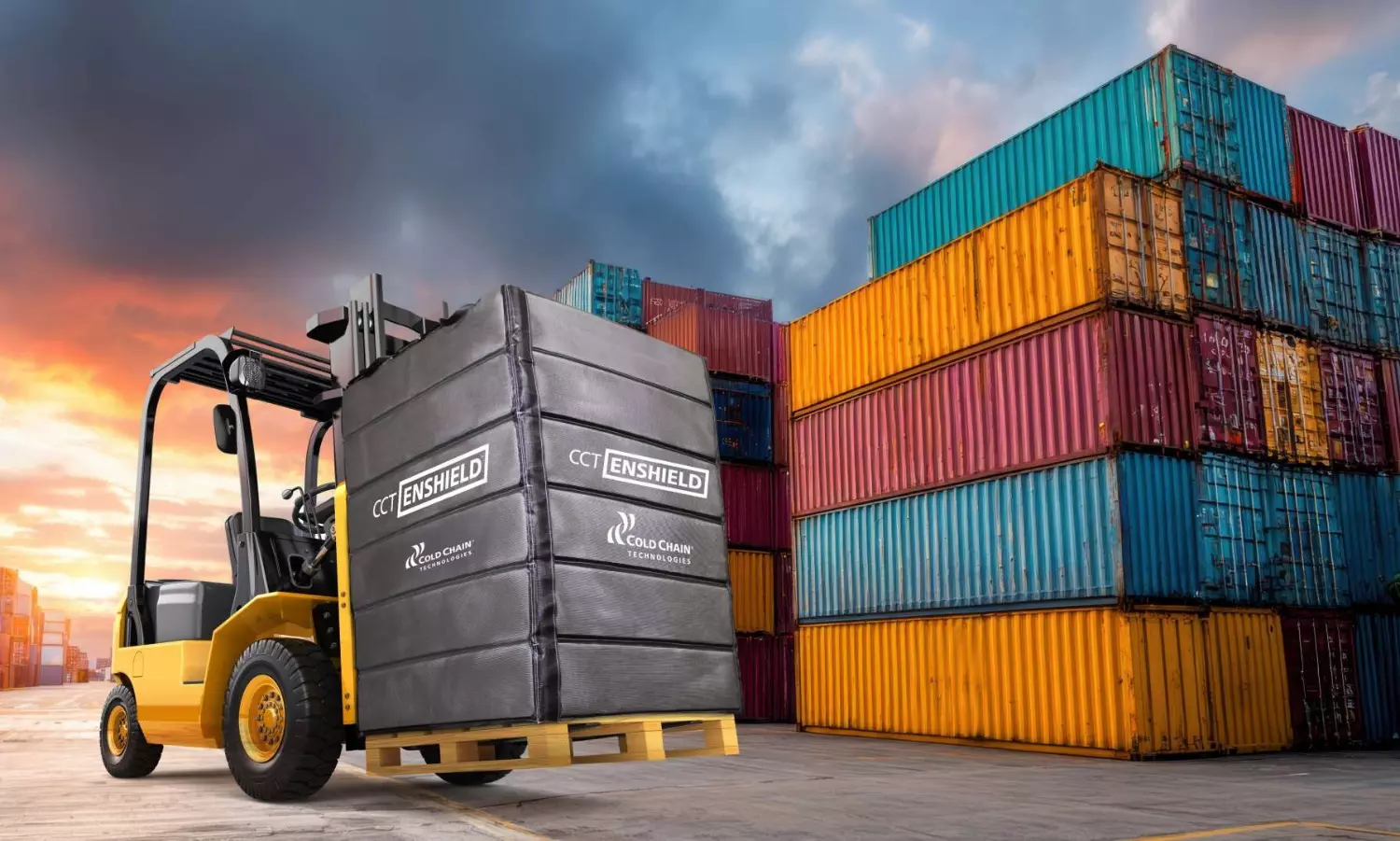Cold Chain Technologies secures pharma cargo on sea route
High-value pharma shipments stayed safe on Germany-to-Australia sea route using CCT’s Enshield thermal protection.

Cold Chain Technologies (CCT) has demonstrated that high-value, temperature-sensitive pharmaceutical shipments can successfully travel by sea, offering a cost-effective and sustainable alternative to air freight. The project, in collaboration with Kuehne + Nagel and Teva Pharmaceuticals, tested the challenging shipping route from Germany to Australia.
The shipment faced multiple logistical hurdles, including the closure of the Suez Canal, a power outage in the Indian Ocean, and port delays upon arrival in Sydney. Despite these challenges, the cargo maintained the required 2-8°C range throughout the journey, due to Enshield, CCT’s high-performance reusable thermal blanket.
Kuehne + Nagel and Teva conducted live testing rather than simulations to meet strict quality and regulatory requirements. Enshield uses leakproof Koolit Advanced gel, a phase-change material that keeps the temperature stable and can be wrapped tightly around pallets for maximum protection.
The shipment left Germany in November 2023 with an expected 60-day journey, ultimately arriving ten days later due to rerouting and delays. Temperature logs recorded only minor fluctuations, confirming the cargo remained safe for end users.
Judineth Miranda, Senior Director of Key Account Management Healthcare at Kuehne + Nagel, said the project was “the most challenging run we did, but the one that performed best,” highlighting Enshield’s critical role in maintaining temperature integrity.
The project also highlighted the environmental advantage of sea freight. One pallet flown from France to Singapore produces five times more CO₂ than 22 pallets shipped by sea.


